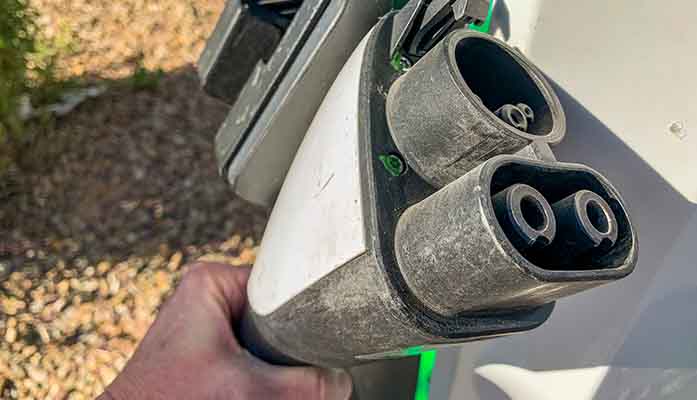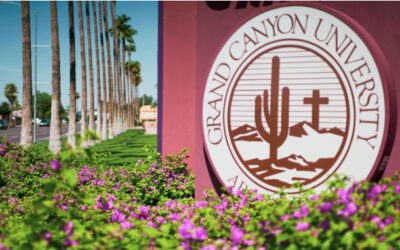By Corinne Murdock |
This summer, the Arizona Department of Transportation (ADOT) will develop a statewide network of electric vehicle charging stations. The state anticipates receiving $76.5 million in federal dollars for the project, funding courtesy of the $5 billion set aside for states through the Biden administration’s National Electric Vehicle Infrastructure (NEVI) Formula Program.
ADOT announced the plans in a press release last Thursday. The initial roadmap for electric vehicle charging stations follows along the international highways running through the state, or “federally-designated corridors”: the I-8, I-10, I-17, and I-40. There’s also a proposed charging corridor for the I-19 connecting Mexico and Tucson.
At present, ADOT is seeking public input and plans to submit an initial plan in August.
On Thursday, the Biden administration announced new standards for the NEVI Formula Program. They said that the need for the standards arose from concerns over electric vehicles’ limited range on a full charge, what they called “range anxiety,” and the possibility of few and far between charging stations, or “vehicle charging deserts.”
Arizona officials are moving ahead despite widespread bipartisan concern that only the wealthy can afford to buy electric. That’s reflected further by past recipients of tax credits for electric vehicles: nearly 80 percent were those making over $100,000.
Additionally, critics point out that tax credits aren’t immediate relief but function to alleviate the additional financial burden on the back end. Bloomberg estimated in March that less than 15 percent of Americans could afford to buy electric.
On the low or “mainstream” end, new electric cars cost between $27,000 and $32,000. Those more affordable models come with a lower range: about 150 to just under 230 miles for the cheapest option, and just under 260 for the high end.
Luxury models with higher ranges cost much more. The low end just under $47,000 comes with a range of just over 270 miles to just under 360 miles. The highest range of just over 400 to 520 miles comes with a $77,400 price tag — a down payment of about $15,500. The 2020 census reported that the median household income in Arizona is about $61,500.
By contrast, gas vehicles cover the same distance as high-end luxury electric models at a much cheaper cost than low-end mainstream electric cars. At just over $20,600, the Nissan Sentra can travel just over 400 miles on one tank. That’s about $5,000 more than the average down payment needed for an electric vehicle of comparable range — the Nissan Sentra down payment would be over $4,100.
There’s even challenges to the claims of electric vehicles’ range. Forbes reported that multiple years of road testing electric vehicles showed that marketed range fell short of actual range — an average of 20 percent less.
Arizonans’ buying power falls further in light of the reality that the median income will cover increasingly less. Arizona families are paying over $500 more a month in household costs due to inflation. In Phoenix, inflation spiked recently to 11 percent.
Yet, major cities are launching their own electric vehicle infrastructure initiatives as well. In addition to ADOT, the city of Phoenix announced last month its draft roadmap for widespread electric vehicle use. Phoenix leadership anticipated that up to 280,000 electric vehicles would be in the area within the next decade. Part of their initiative includes switching city vehicles to electric, establishing electric vehicle charging stations for the city and its employees, and updating the zoning ordinance and building codes by 2025 to standardize electric vehicle charging access.
Additionally, Tucson City Council enacted a policy last summer requiring electric vehicle charging outlets on all new constructions of one- and two-family dwellings. The city is now attempting to enact a similar requirement for apartments and commercial development. The community is embroiled in controversy over city leadership’s efforts.
Their state senator, Minority Whip Victoria Steele, attempted to pass similar legislation this session. That bill never made it to the Senate floor for a final vote, though it did pass out of committee.
Corinne Murdock is a reporter for AZ Free News. Follow her latest on Twitter, or email tips to corinne@azfreenews.com.








